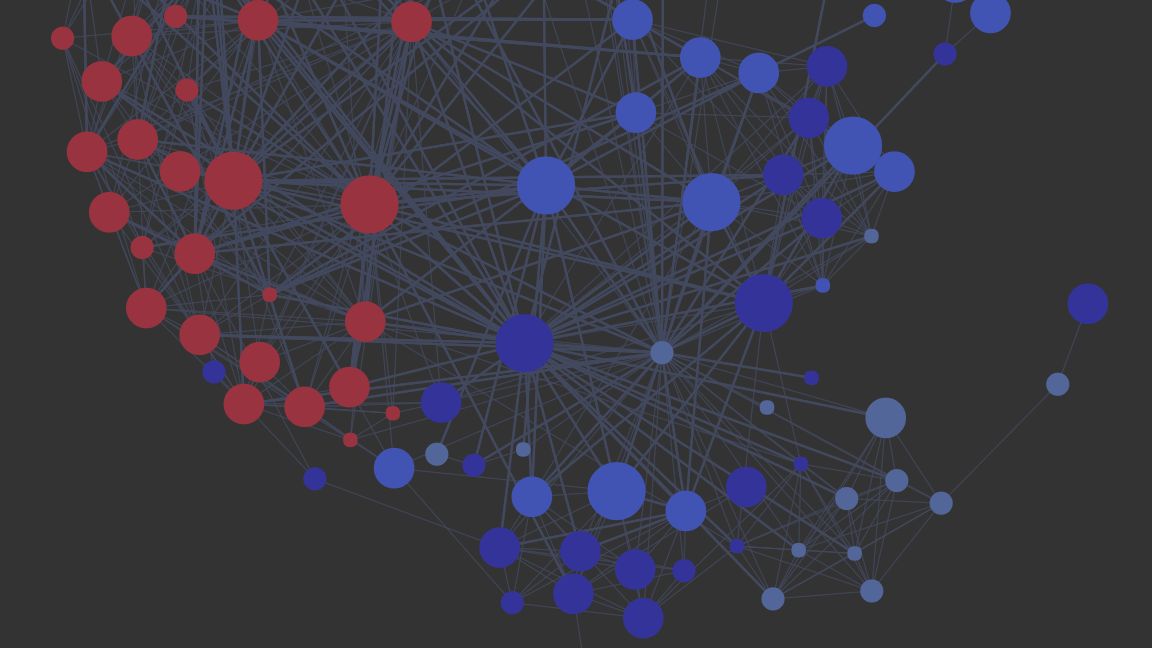Primary relationships impact personal network structures
In my post “Change over time“, I hypothesised that coupling up and separating with someone would have a significant impact on the structure of an individual’s personal network. After my divorce many years ago, my network structure shifted from one that was compartmentalised to that of a ‘sampler’. Little did I know that I would soon have the opportunity to actually test this theory.Between 2015 and 2016, I tracked how my London social network grew from a small group of pre-existing connections to a reasonably strong support system. In the resulting graph, I emphasised the role that non-local contacts had in helping me expand my community. Now I’ve taken 2016 data and compared it to the present in a new visual:The most dramatic differences between the 2016 and 2017 visualisations are the new node sitting at the centre of the graph and the cluster of new nodes on the far right. That central node is my new partner and the cluster to the right is the portion of his London network that he has introduced to me. His …


